Septoplasty in Cape Town
Search and Compare the Best Clinics and Doctors at the Lowest Prices for Septoplasty in Cape Town

Find the best clinics for Septoplasty in Cape Town
No pricing info available
Romania offers the best prices Worldwide
Price: $ 404
From 18 verified reviews
Juliettash Stadler, 05 May 2020
My Son was admitted with a very rare autoimmune illness in April this year. The care he was given was superb Prof Dheda, Prof Louw and their team of specialists covered every possibility , diagnosed efficiently and treated effectively. There was time taken to explain everything. The Hospital Matron made allowances for me to spend as much as possible time with my son and also allowed for frequent visits from close family. Mr Daniel Mathew the Hospital General manager is very approachable and interested . The staff was friendly and helpful. Basically every one from reception through admin to ICU was friendly and helpful. I Highly recommend this hospital
From 36 verified reviews
Kim Adams, 30 March 2020
Overall I had a good experience.
Dr Pedro Monteiro - ENT and Skull Base Surgeon, located in Syfred Douglas St, Cape Town, South Africa offers patients Septoplasty procedures among its total of 21 available procedures, across 1 different specialties. Currently, there's no pricing information for Septoplasty procedures at Dr Pedro Monteiro - ENT and Skull Base Surgeon, as all prices are available on request only. All procedures and treatments are undertaken by just a small team of specialists, with 2 in total at the Hospital, and they have multiple recognized accreditations, including: HPCSA - Health Professions Council of South AfricaRCSEd - The Royal College of Surgeons of EdinburghRCSEd - The Royal College of Surgeons of EdinburghFCS(SA) - Fellowship of the College of Surgeons of South Africa
- Home
- South Africa
- Cape Town
Compare Before & After Photos of _procedure_photos.phpSeptoplasty
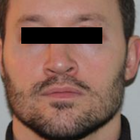
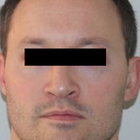
Front view
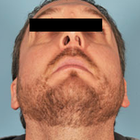
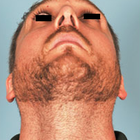
Front view
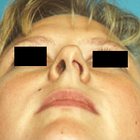
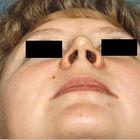
Front view
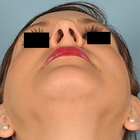
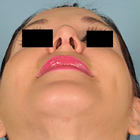
Front view
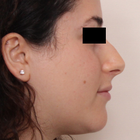
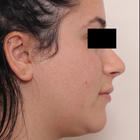
Full-side view
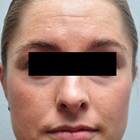
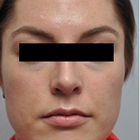
Front view
WHY US?
At Medijump, we're making medical easy. You can search, compare, discuss, and book your medical all in one place. We open the door to the best medical providers worldwide, saving you time and energy along the way, and it's all for FREE, no hidden fees, and no price markups guaranteed. So what are you waiting for?

Free

Best Price

Widest Selection

Risk-Free
What you need to know about Septoplasty in Cape Town
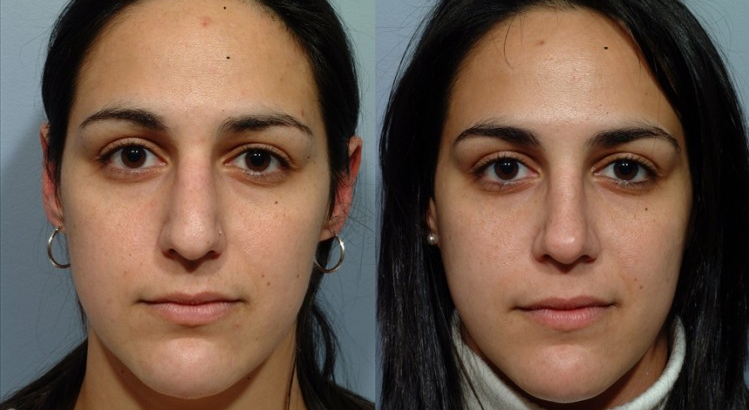
A septum is a bone and cartilage that separates the nasal cavity of the nose. When your nasal septum is off-center, crooked, or moved to one side of your nose, it is a condition known as a deviated septum and can make breathing difficult. To correct this condition, you may need to undergo Septoplasty, where your septum will be straightened to allow better airflow through your nose. This surgery is the only way to fix a deviated septum. However, septoplasty may also be performed to treat long-term sinusitis, remove nasal polyps, or treat other conditions that block the nasal airways. Sometimes, surgeons also recommend this surgery to stop recurrent nosebleeds and facial pains. For conditions other than deviated septum, surgeons often only recommend septoplasty after ruling out other treatments.
What does a Septoplasty Procedure Involve?
A deviated septum is common, but when the condition is severe, it can block one side of your nose and reduce airflow. It can also contribute to crusting or bleeding. If you experience difficulty breathing through your nose that significantly affects your life, you may want to consider septoplasty. Before the surgery, your doctor will review the details of the surgery and ask you to complete some routine tests, such as a blood test, electrical heart tracing, or X-ray. Be sure to tell your doctor if you have any possible allergies. To prepare for the procedure, you may need to stop taking certain medications at least two weeks before the surgery because they can increase your risk of excessive bleeding and the medications include aspirin, ibuprofen, and other blood-thinners.
Septoplasty can be carried out under local anesthesia or general anesthesia. If you have the surgery under local anesthesia, you should not eat or drink anything after midnight the night before the procedure. Not eating and drinking will prevent you from vomiting and choking if the anesthesia nauseates you during surgery. Your surgeon will start the surgery by making an incision on one side of your nose to access the septum. They will then lift the mucosa lining that covers the cartilage and bone. Next, they will reshape the cartilage and bone to move the deviated septum to the correct position. Extra pieces of bone or cartilage that make barriers will be removed. Then, they will reposition the mucous membrane. You may need stitches to hold the septum and membrane in place. Soft silicone splints are sometimes inserted inside the nostrils to support the septum. The whole procedure takes between 30 to 90 minutes to complete.
How Long Should I Stay in Cape Town for a Septoplasty Procedure?
Septoplasty is an outpatient procedure, which means you will likely go home on the same day of the surgery after the anesthesia has worn off unless major complications arise. However, you should stay in the Cape Town for 3-4 days for the initial recovery and follow-up checkups. If your surgeon places splints in the nose, they will be removed within seven days. You may return home when your surgeon allows you as long as there is no complication.
What's the Recovery Time for Septoplasty Procedures in Cape Town?
You may feel drowsy for a few hours following the surgery and you may also feel pain. However, your surgeon will prescribe medication to help with the pain. Some congestion and bleeding can occur after you are discharged from the hospital as your body recovers, but these symptoms should be gone in 2 weeks. The recovery period varies from one person to another. In general, you should be able to return to work within a few days, but you should allow at least three weeks before going back to your full normal routine. You should also limit your physical activities such as exercise for several weeks to minimize swelling and speed up healing because intense physical activities can increase your blood pressure and lead to bleeding.
What sort of Aftercare is Required for Septoplasty Procedures in Cape Town?
Your doctor will give you post-operative care instructions, which you will need to follow, The wound on your nose will heal fairly quickly, and your breathing will improve shortly after the procedure. For a quicker recovery, you may need to elevate your head at night to keep the swelling down, wear a button-up shirt so you do not need to pull clothing over your head, and do not blow your nose for at least two to three days after surgery. Avoid drinking alcohol, smoking tobacco, returning to work too soon, strenuous activities, and being in a crowd where people are smoking or coughing.
What's the Success Rate of Septoplasty Procedures in Cape Town?
The success rate for septoplasty is high, with up to 85% of people experiencing a significant improvement in their nasal blockage after surgery.
However, some people will require a second surgery if they are not satisfied with the results. Septoplasty is a very low-risk procedure, but you should be aware of the possible complications and side effects and these risks can include:
- Bleeding in small amounts is common, but in rare cases, excessive bleeding may occur.
- Infection can occur after septoplasty because the nose is not a sterile environment.
- Toxic shock syndrome is a very rare and life-threatening infection.
- Septal perforation is a small hole that can sometimes develop in the nasal septum during or after the surgery.
- Spinal fluid leak and it is extremely rare.
Other risks such as scarring, and altered nose shape, discoloration of the nose, a decreased sense of smell, tooth or nose numbness, and continuing symptoms are also possible. Other than following your surgeon’s aftercare instructions, keeping the nose clean and washing your hands often can reduce the risks.
Are there Alternatives to Septoplasty Procedures in Cape Town?
Although most conditions of a deviated septum can only be treated by septoplasty, there are nonsurgical treatments for other nasal blockages to help you breathe better. If your nasal blockage is caused by an allergy, you may take antihistamines from your doctor or over-the-counter. In cases of bacterial infection, your doctor can prescribe antibiotics to help clear the nasal airways.
Whilst the information presented here has been accurately sourced and verified by a medical professional for its accuracy, it is still advised to consult with your doctor before pursuing a medical treatment at one of the listed medical providers
No Time?
Tell us what you're looking for and we'll reachout to the top clinics all at once
Enquire Now

Popular Procedures in Cape Town
Prices Start From $1,945

Prices Start From $101

Prices Start From $192

Prices Start From $500

Recommended Medical Centers in Cape Town for Septoplasty

- Interpreter services
- Translation service
- Religious facilities
- Medical records transfer
- Medical travel insurance
- Health insurance coordination
- TV in the room
- Safe in the room
- Phone in the room
- Private rooms for patients available

- Interpreter services
- Translation service
- Religious facilities
- Medical records transfer
- Medical travel insurance
- Health insurance coordination
- TV in the room
- Safe in the room
- Phone in the room
- Private rooms for patients available

- Interpreter services
- Translation service
- Religious facilities
- Medical records transfer
- Medical travel insurance
- Health insurance coordination
- TV in the room
- Safe in the room
- Phone in the room
- Private rooms for patients available
Septoplasty in and around Cape Town
About Cape Town
Cape Town is the legislative capital of South Africa and is also known as the Mother City. It is the oldest city in the country and home to the Parliament of South Africa and is a major destination for immigrants and expatriates, making it one of the most multicultural cities in the world. Located on the shore of Table Bay, the city is known for its harbor, natural setting, as well as famous attractions and many tourists, visit to enjoy Table Mountain and Cape Point.
Recently, tourists also come to the city for its medical tourism. Many groundbreaking procedures and medical research in South Africa, such as the world’s first penile transplant, have put Cape Town under the radar of medical tourists from all around the globe. Thanks to its world-class healthcare and world-renowned medical practitioners, more and more people now prefer Cape Town as their medical destination. The healthcare in the city is among the best on the African continent. Other reasons such as shorter waiting times for surgeries, state-of-the-art equipment, and affordable healthcare compared to Europe and the United States, and English-speaking doctors.
Popular Areas in Cape Town
Cape Town is a natural beauty that offers a wide range of things to do and see. From culture, food, art, to nature. Listed below are some of the more popular places in the city:
- Table Mountain is one of the New 7 Wonders of Nature and it is easy to see why. The iconic mountain makes an amazing backdrop to Cape Town. The level plateau is about 3 kilometers from side to side with remarkable cliffs on the edges. The peak offers an amazing view of the city. Tourists can choose to board the cable car or discover its beautiful nature by hiking.
- Cape of Good Hope is situated within the Table Mountain National Park. The area has a mix of bio-diversity and wonderful beauty that attracts thousands of tourists to visit. There are around 250 species of birds spotted in the area. Hiking and cycling through it is the best way to discover its true majesty. Tourists can picnic and birdwatch in isolated beaches.
- Kirstenbosch National Botanical Garden is one of the most incredible botanic gardens in the world. Nestled at the eastern foot of Table Mountain, it features a natural forest and fynbos flora and sprawls around 528 hectares. The garden displays a collection of diverse South African plants with seasonal festivals such as musical sunset concerts during summer and craft markets on the last Sunday of every month.
- Groot Constantia is the oldest wine-producing estate in South Africa, located in the suburb of Constantia. The estate consists of a museum, restaurants, tasting room, and cellars. The museum was built in Cape Dutch architecture style, further into the estate; tourists will find the free orientation center which provides an overview of Groot Constantia history. Tourists can also tour the original wine cellar, have a wine tasting, or a wine and chocolate pairing.
- Boulders Penguin Colony is located in Boulder Beach on the outskirts of Simon’s Town. The beach boasts fine white sand with pristine waters and endangered African penguin colonies. Tourists can set up camp, see the penguins up close, and even swim along with the magnificent aquatic birds. Observing the penguins socializing and playing in the waves is a perfect way to enjoy your travel in Cape Town.
Weather and Climate in Cape Town
Cape Town enjoys a warm Mediterranean climate. The summer is dry and warm, lasting from early December to March. The average maximum temperature during this season is around 26 °C, and the minimum is 16 °C. The Berg Wind that arrives from February to early March can make the city uncomfortably hot for a couple of weeks.
The winter starts in June and ends in August and the season is characterized by mild and wet weather. The city also experiences strong north-westerly winds during this season. The average temperature ranges between 8.5 °C at the lowest and 18 °C at the highest.
Getting Around in Cape Town
The primary airport that serves Cape Town is the Cape Town International Airport and it is the second busiest airport in South Africa and the fifth busiest in Africa. The airport serves direct domestic flights to major cities and several small centers in the country. It also connects the country with major cities in Africa, Europe, the Middle East, and Asia. It is the hub for South African Express as well as budget airlines such as Mango and FlySafair.
There are several types of taxis: the metered taxis, Rikkis Taxis, and minibus taxis. The metered taxis can be a little expensive but are usually comfortable. Tourists can order one via a phone call or from one of the city’s official taxi stands. Tourists should always choose reputable taxi companies such as Marine Taxi, Unicab, Excite, and SA Cab.
Rikkis Taxis are painted yellow and very popular and these taxis run on a fixed fare rather than metered, so they are a little more affordable than metered taxis and a good option if you are traveling on longer journeys. Other than the Rikkis Taxis, tourists can choose the minibus taxis which are perfect for adventurous foreign travelers. The minibus taxis can be found practically everywhere and are very cheap, however, you will need to know exactly where your destination is and tell the driver when to stop. Another travel option is the MyCiTi bus, a modernized and effective bus system.
Tourist Visas in Cape Town
There are more than 60 countries listed in the visa exemption agreements, which means the citizens of these countries can stay in South Africa for up to 90 days. Other countries not listed must obtain a valid visa to enter the country. A Medical Treatment Visa is available for medical tourists. Note that all visitors must hold a passport valid for at least 30 days after the expiration of their intended visit.
Additional Information
- Local Currency: South African Rand (ZAR) is the official currency and 1 USD converts to 14 ZAR.
- Money & Payments: Tourists can find ATMs almost everywhere around the city, but you should avoid ATMs in secluded places, especially at night. Credit cards are accepted in established restaurants, hotels, and shops. It is always better to carry some cash because smaller food places are cash-only. Tipping is expected here.
- Local Language: The most common languages in the city are English, Afrikaans, and Xhosa with Afrikaans as the most widely spoken home language.
- Local Culture and Religion: The population follows Christianity, Islam, Judaism, and several other religions.
- Public Holidays: There are 12 official public holidays in Cape Town, including New Year’s Day, Freedom Day, and Christmas.
Popular Searches
- Plastic Surgery in Thailand
- Dental Implants in Thailand
- Hair Transplant in Thailand
- Breast Augmentation Thailand
- Gastric Sleeve in Thailand
- Gender Reassignment Surgery in Thailand
- Laser Hair Removal in Bangkok
- Botox in Bangkok
- Dermatology in Bangkok
- Breast Augmentation in Bangkok
- Coolsculpting in Bangkok
- Veneers in Turkey
- Hair Transplant in Turkey
- Rhinoplasty in Turkey
- Stem Cell Therapy in Mexico
- Rhinoplasty in Mexico
- Liposuction in Mexico
- Coolsculpting in Tijuana
- Rhinoplasty in Korea
- Scar Removal in Korea
- Gastric Sleeve in Turkey
- Bone Marrow Transplant in India
- Invisalign in Malaysia
- Plastic Surgery in the Dominican Republic
- Tummy Tuck in the Dominican Republic
- Plastic and Cosmetic Surgery in Poland
- Rhinoplasty in Poland
- Hair Implant in Poland
- Dental Implants in Poland
- IVF in Turkey


